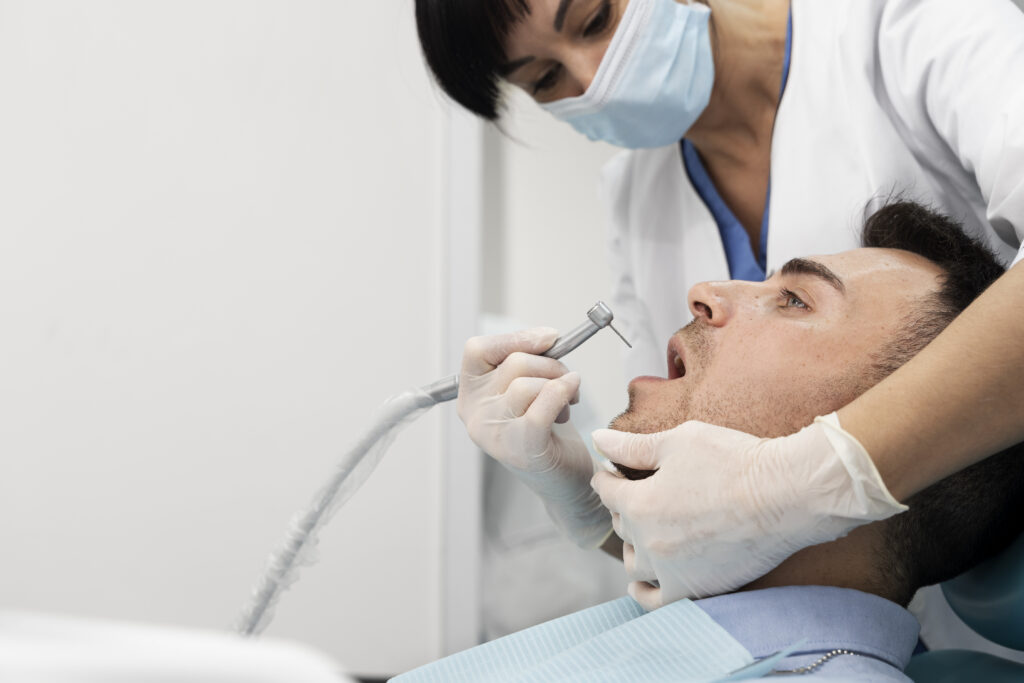Key Takeaways
- Waiting usually makes problems worse: Problems like stuck teeth or infections don’t fix themselves. They can get worse and hurt more as time goes on.
- Wisdom teeth are time-sensitive: Delays can cause infections or cysts that can damage the jawbone and nearby teeth.
- Delays raise costs and recovery time: Getting help early is easier and cheaper. If you wait too long, you might need a bigger operation and take more time to feel better.
- Not every case is urgent, but many are: If you have pain, swelling, or bleeding gums, you need to see a dentist right away. If your gums feel fine, you can wait and keep an eye on them.
Waiting on oral surgery feels tempting, especially when life in Oxnard is busy with work, teens, and family commitments. Dental problems, like impacted teeth or infections, usually don’t get better on their own. The longer you wait, the more painful and expensive the treatment will be, and it can become more complicated. That’s why sitting down with trusted oral surgeons can save you a lot of stress.
At Puri Dentistry, we’ve seen both types of patients, the ones who came in quickly and were back to their routines within a week, and the ones who waited until the pain was unbearable. The second group almost always has it harder.
Why Do People Wait?
If you’ve been putting surgery off, you’re not alone. A lot of Oxnard residents tell us:
- “The pain comes and goes. I figured it wasn’t urgent.”
- “I don’t have time to miss work.”
- “I’m nervous about the whole process.”
- “I’m worried about the cost.”
These reasons are real and valid. But the problem is, your teeth and gums don’t hit pause while you’re busy. They keep changing, even when the pain takes a break.
Wisdom Teeth: A Ticking Clock
Impacted wisdom teeth are one of the top reasons patients see oral surgeons. At first, it might just feel like pressure in the back of your mouth. Easy to ignore, right?
The trouble is what happens underneath the surface:
- Food and bacteria get trapped: infection.
- Teeth crowd together: your bite shifts.
- In rare cases, a cyst forms: jawbone damage.
We had a local college student, we’ll call him Daniel, who put off surgery for almost two years. When he finally came in, one wisdom tooth had decayed, and the infection had spread to the tooth in front of it. What could have been one easy extraction turned into two surgeries and a much longer recovery.
Dental Infections Don’t Wait for You
An infection in the mouth spreads faster than most people realize. Antibiotics can calm things for a little while, but they don’t fix the real issue.
When patients delay, the infection can travel into the jaw, the face, or even the bloodstream. At that point, it’s not just a dental problem; it’s a health emergency. That’s why oral surgeons are so firm about treating infections right away.
Bite and Jaw Issues Keep Quiet, Until They Don’t
Some patients are told they might need oral surgery for bite or jaw alignment. Since these issues don’t always hurt immediately, it feels easier to wait.
But the body adapts in ways that cause new problems:
- Teeth wear down unevenly.
- Jaw muscles ache more often.
- Headaches creep in.
- Chewing certain foods becomes harder.
By the time many patients come back, the solution is more complex than it would have been years earlier.
The Hidden Cost of “Later”
We get it, cost is one of the biggest reasons people delay. But here’s the hard truth: waiting usually makes the bill higher. A simple wisdom tooth extraction in your 20s might be quick and affordable. Delay until your 30s or 40s, and the same tooth could need surgical removal with bone grafting.
Healing also gets tougher with time. Younger patients bounce back quickly. Older patients often need more downtime, and recovery isn’t always as smooth.
When Waiting Is Safe
Not every case is urgent. Sometimes, it’s okay to keep an eye on things:
- A wisdom tooth that’s fully in place, pain-free, and easy to clean.
- A small cyst that isn’t growing.
But if you’re seeing swelling, bleeding gums, or constant pain, waiting is not safe. That’s when it’s time to call oral surgeons and get a plan in place.





